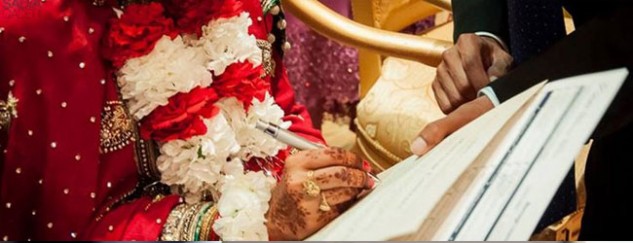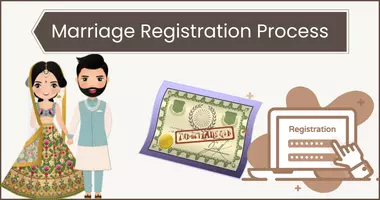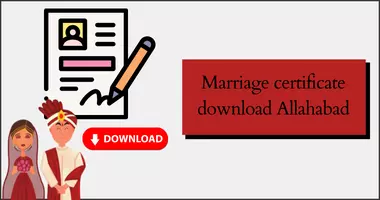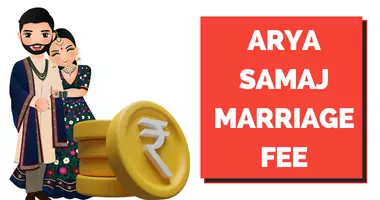Wondering — how can I get marriage certificate? If you’re planning to apply for marriage certificate online, there are a few things you need to know first — from the required documents to the fee structure of the marriage application. This blog is your complete guide to the marriage certificate application process — what to prepare, how to submit your marriage application online, and some tips on how to get marriage certificate online without delays. So, let’s begin.
Types of Marriage Acts in India
Before you apply for a marriage certificate online, it’s important to know which law your marriage falls under. This determines the documentation, process, and timeline involved.
Here are the main marriage acts in India:
1. Hindu Marriage Act, 1955
Applies if both husband and wife are:
- Hindus, Buddhists, Jains, or Sikhs
- Converted to any of these religions
Covers most traditional marriages solemnized through Hindu customs.
2. Special Marriage Act, 1954
Applicable when:
- One or both partners are from different religions
- You choose a court or civil marriage (without religious rituals)
This process requires a 30-day public notice period before registration.
3. Indian Christian Marriage Act, 1872
Covers marriages between Christians, requiring solemnization by a recognized priest or authority under the Act.
4. Muslim Personal Law
Muslim marriages (Nikah) are treated as contracts. A Nikah Nama serves as valid documentation. For legal recognition, couples can still register under the Special Marriage Act.
5. Parsi Marriage and Divorce Act, 1936
For Parsis, the marriage must be performed with the “Ashirvad” ceremony in front of two Parsi witnesses and a priest.
Each act has its own set of conditions and procedures. When you start your marriage certificate application, make sure to follow the guidelines that apply to your situation.
Who Can Apply for a Marriage Certificate Online?
Before you apply for a marriage certificate online, it’s important to make sure you meet the legal eligibility requirements. Here are the basic conditions under Indian law:
- Minimum Age:
- Groom must be at least 21 years old
- Bride must be at least 18 years old
(As per the Prohibition of Child Marriage Act)
- Neither party should have a living spouse at the time of marriage.
- Both parties must give free and full consent without coercion, fraud, or undue influence.
- Both individuals should be mentally capable of understanding the responsibilities of marriage.
- The couple should not be within degrees of prohibited relationship unless permitted by personal laws.
- Depending on the marriage act, one or both parties may need to reside in the jurisdiction where registration is sought.
Making sure you meet these criteria will make the marriage application online smooth and hassle-free
Documents Required for Marriage Application Online
Make sure to have the following documents ready:
- Marriage application form signed by both spouses
- Proof of age (Birth certificate, Passport, etc.)
- Proof of address for both spouses
- Three passport-sized photos of both parties
- Two marriage photographs
- Marriage invitation card (optional but helpful)
- ID proof and photos of two witnesses
- In case of remarriage: divorce decree or death certificate
These documents are standard for most cities when you apply for marriage certificate online.
How to get Marriage Certificate in India
You can get a marriage certificate in India through three main routes. The right one depends on how you got married — or plan to.
1. Civil Marriage Under Special Marriage Act (SMA)
For: Couples who want a court marriage without religious rituals. Common for interfaith or secular marriages.
Steps:
- Apply online or offline with the Marriage Officer in your district.
- A mandatory 30-day public notice period follows your application. This is to allow time for objections, if any.
- After 30 days, if no valid objections are raised, the Marriage Officer solemnizes the marriage in their office or a permitted venue.
- Your marriage certificate is issued immediately after solemnization.
2. Registering an Existing Marriage Under SMA (Form 16 Marriage)
For: Couples already married via religious ceremony, now registering under a secular law.
Steps:
- Submit an application (Form 16) to register your existing marriage.
- Similar to civil marriage, a 30-day public notice is issued to allow for objections.
- If no issues arise, the marriage gets registered and your certificate is issued
Why this path:
- You’ve already had a Hindu wedding, Nikah, Church wedding, or similar religious ceremony.
- You now want to register the marriage under the Special Marriage Act — often required for legal or visa purposes where personal law isn’t recognized.
3. Registration Under Personal Laws (e.g., Hindu Marriage Act)
For: Couples married through religious customs who want quick legal registration.
This process is faster than the Special Marriage Act because it doesn’t require a 30-day waiting period before registration.
Steps:
- Apply for registration under the applicable personal law at your local Sub-Divisional Magistrate (SDM) office or registrar.
- Submit required documents (proof of marriage, age, address, photos).
- Certificate is typically issued within a few working days, depending on your state or city.
Examples:
- Hindu Marriage Act for Hindu weddings.
- Christian Marriage Act for church weddings.
- Nikahnama (for Muslims) may need notarization or court registration.
Fee Structure for Online Notice & Registration
| Description | Fee (INR) |
|---|---|
| Issue notice under Section 6 and publish it | 50 |
| Additional copies of notice (per copy) | 50 |
| Application under Section 15 | 100 |
| Registrations and objections under Section 7 or 16 | 25 |
| Marriage ceremony at registrar’s office | 150 |
| Marriage ceremony at private place (other than office) | 1000 |
| Certified copies of applications or certificates | 25 |
| Record search applications (Section 5) | 5 |
| Search fees (first year) | 5 |
| Search fees (subsequent years max) | 25 |
| Appointment of commission | 50 |
| Filing copy of decree/verdict or divorce under Section 6 | 5 |
| Other applications under the Act | 5 |
These fees mainly apply to the Special Marriage Act and may differ by state. For example, Hindu Marriage Act fees are often lower. Always check your state’s official website for the latest charges.
Benefits of Marriage Certificate
- Required for passport applications and bank account updates after marriage.
- Needed to apply for spouse visas and overseas travel—foreign embassies often don’t accept traditional ceremony proof.
- Helps claim life insurance or bank deposits if a spouse passes away without a nominee.
- Acts as legal proof of marriage for any official or legal process.
FAQs
How do I register marriage?
Marriage Registration Under Hindu Marriage Act
- Fill the marriage registration form with names, addresses, and signatures of both bride and groom.
- Include signatures and addresses of 3 witnesses present at the wedding.
- Attach joint photo of the couple, wedding card, and ID/address proof (like passport, SSC certificate).
- Submit to the Marriage Registrar.
- The officer verifies documents and issues the marriage certificate if everything is correct.
Marriage Solemnization Under Special Marriage Act (SMA)
- Give a 30-day advance notice of your intent to marry to the Marriage Officer.
- Either the bride or groom must have stayed at least 30 days in the officer’s jurisdiction before notice.
- If there are no objections, appear within 60 days (after the initial 30 days) with 3 witnesses for the marriage.
- If not solemnized within 90 days of notice, you must start over with a new notice.
- Marriage Officer conducts the ceremony, administers oath, and issues the marriage certificate
What documents do I need for a marriage certificate application?
You’ll need these documents
- Marriage application form signed by both spouses
- Proof of age (Birth certificate, Passport, etc.)
- Proof of address for both spouses
- Three passport-sized photos of both parties
- Two marriage photographs
- Marriage invitation card (optional but helpful)
- ID proof and photos of two witnesses
- In case of remarriage: divorce decree or death certificate
How long does it take to get a marriage certificate online?
For marriages under the Hindu Marriage Act, it can often be processed within a 7 working days to 15 days. For direct solemnization or registration of pre-existing marriages under the Special Marriage Act, expect at least a 30-day notice period, with the certificate issued after that, making the total process typically 45-60 days or more





Samiruddin Ali
Vill-bahadurpur, p.o-fatepur, p.s-burwan, dist-murshidabad, pin-742132